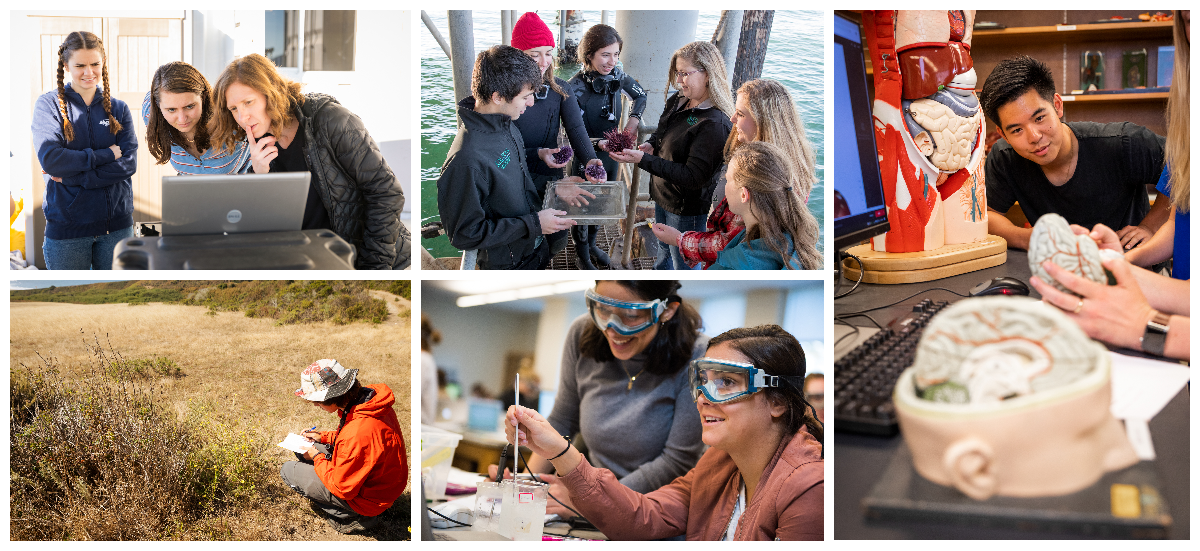
Laboratories

Environmental Proteomics Laboratory (EPL)
The Environmental Proteomics Laboratory (EPL) focuses on the changes in levels of protein expression in response to environmental stress. We quantify the expression (or synthesis) levels of proteins with two-dimensional gel electrophoresis (2D GE) and identify proteins using mass spectrometry. The parallel changes in expression, so-called co-expression patterns or protein profiles, provide us with a comprehensive picture of the simultaneous changes that occur while an organism is experiencing thermal, oxidative and osmotic stress in its environment.
In the EPL, Professor Lars Tomanek and his students apply a proteomic approach (expression proteomics) to address some basic questions in ecology and evolution: How are organisms adapted to their environment? How do they differ in their ability to respond to environmental change? How do these differences in protein expression limit the ecological niche an organism can occupy? Which proteins are the “weak links,” and which ones are always working no matter which environment the organism is found in? What is the unity in physiological design? What are the underlying mechanisms for the diversity of physiological systems, and how do these differences determine the ecological boundaries of species distributions?
Left: dissection of a Goby. Photo courtesy EPL.
Contact: EPL Director Professor Lars Tomanek
805-756-2437
ltomanek@calpoly.edu

Physiological Ecology of Reptiles Lab (PERL)
The Physiological Ecology of Reptiles Lab (PERL) studies the ecology, physiology and behavior of free-ranging reptiles in Central and Southern California. Research in PERL examines reproductive physiology and physiological trade-offs in reptiles.
In particular, much of the lab's research revolves around testosterone, a potent androgen that stimulates the expression of male-typical behaviors and physiological responses. It often results in a major re-direction of energy toward these responses.
For example, during breeding seasons, increases in testosterone concentrations may cause male reptiles to expend more energy on movement, territory guarding, and mate-searching and defense. The negative energy balance induced by testosterone during breeding seasons may affect immune function, growth, fat reserves, and other factors. We are particularly interested in measuring immune function and parasites. Professor Taylor and her students are seeking to understand these trade-offs in reptiles in laboratory and field settings.
Left: Sonoran mountain kingsnake. Photo courtesy Professor Taylor.
Contact: Professor Emily Taylor
805-756-2616
etaylor@calpoly.edu

Undergraduate Biotechnology Laboratory (UBL)
The Undergraduate Biotechnology Laboratory (UBL) houses biotechnology equipment used year-round for undergraduate research and the development of course-specific exercises for undergraduate classes. The UBL is co-funded by Cal Poly and a National Science Foundation grant.
Left: Jasco V-550 Photospectrometer
Contact: UBL Director Professor Michael Black
805-756-2894
mblack@calpoly.edu
Biological Sciences Computer Lab
Fisher Science Hall (33), Room 258.
The Biological Sciences Computer Lab is largely a drop-in lab for students from 8am to 8pm, Mondays through Thursdays and 8am - 5pm on Fridays. It is also a perfect place to study.

Human Anatomy Laboratory (HAL)
The Human Anatomy Lab (HAL) houses Cal Poly’s very special human cadaver specimens and supports the ethical use of human donations in research and teaching. Cal Poly students interested in studying and mentoring others about human anatomy may apply to the following courses:
- Advanced Human Gross Anatomy (BIO S411)
- Senior Research Project (BIO 462)
- Learn by Doing Lab: Gross Anatomy (SCM 302)
Visit the Human Anatomy Lab webpage.
Contact: HAL Director, Michael “Mike” Jones
805-756-2906
mjones99@calpoly.edu
